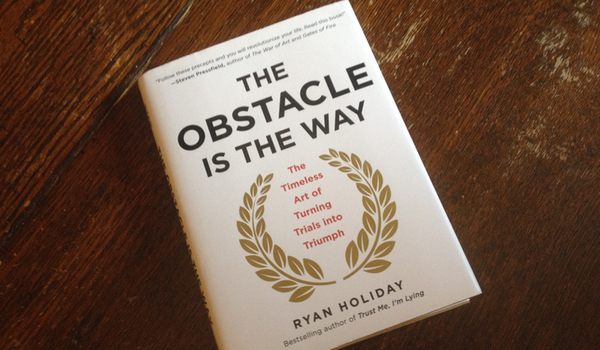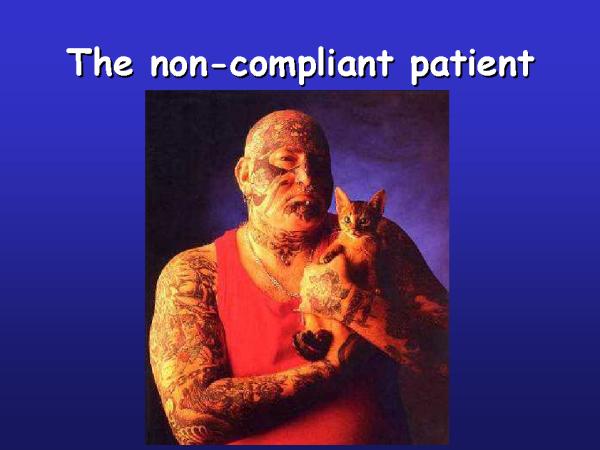Note: This article is written for my fellow PTs in mind, however non PTs may learn a useful morsel or two.
I recently finished Ryan Holiday’s The Obstacle is The Way, an excellent distillation of stoic philosophy abounding with real-word examples and actionable advice.
Highly recommended for anyone who deals with people or adversity on a regular basis (read; everyone). One of the major concepts this book discusses is the recontextualization of challenges and failures as opportunities to practice a new skill set or attempt to solve a new problem. This notion had me reflecting on a challenge that I typically experience in my practice fairly often; that of a patient not adhering to their home exercise program.
Literally the first Google Image result for "non-compliant patient", leaving me with far more questions than answers
While I’m continually trying to refine and improve my manual skillset, I’m an absolute sucker for improving movement and joint variability through activities that a patient or client can perform on their own. In this regard, my practice has been heavily influenced by many PRI principles and interaction with the good folks over at IFAST.
Let’s say it’s an initial evaluation and I prescribe a 90/90 hip lift with a right arm reach (side note to my PRI peeps- what can’t it do???) because I really like what the activity, when performed in the clinic, did for a patient’s subjective symptoms and objective movement testing. Fast forward 1 week and I’m seeing them for their follow up.
“So has your home program been going”
“I’ll level with you, Tim, I haven’t been doing it”
Most times, this coincides with their symptoms and objective testing having fully returned back to “baseline” (Unless those 25 breaths of the hip lift one time were THAT good). This is around the time when I start to feel like this.
"A LOOSE SEAL??!??"
And I’ll confess...in the past, I’ve really struggled with this situation. I’ve fallen into the trap of thinking that this type of patient is simply “lazy”, “doesn’t get it”, and would be forever doomed due to their innate lack of motivation and awesomeness. Kind of like the Anti-Rock.
Because he's awesome. And eats 3 pounds of cod a day. And benches more than your first car weighed.
Fair? Absolutely not. For sure, this type of patient is an obstacle, both to you and to themselves. But the obstacle IS the way.
The blog is still looking for its first sponsor, Ryan
The obstacle presents opportunities. And in this case, those opportunities can give the patient a better outcome and make you a better clinician (and human).
My thinking now when I hear “I haven’t been doing my exercises”? Good. Let’s dive into this. What can I explore with them? How can I learn? How can I change my education approach or communication style? How can I be better?
Patient’s true reasons for not adhering to their program are myriad. Maybe it’s a lack of time- real or perceived. Good. Practice your motivational interviewing and learn to give basic advice on time management. Reduce the volume or frequency so that their exercise will be so easy they won’t be able to say not do it. Establish the program as a habit and build from there.
Maybe it’s because they didn’t feel the activity was effective? Good. It’s an opportunity to coach them up, try new cues, or try new activities.
Maybe it’s a lack of space, equipment, or convenience? Good. Another opportunity to trial new exercises that you wouldn’t have otherwise had a chance to practice.
Maybe they forgot the activity? Great! It’s an opportunity to fine-tune your HEP handout and patient education process.
Every struggle has a silver lining. Every obstacle presents an opportunity. But only if you recognize it. The non compliant patient is an amazing opportunity to refine communication, education, and treatment. It’s NOT an excuse to label a patient as lazy in an effort to assuage your guilt that you’re not doing everything you can to be the best clinician you can be. We can do better. We can be better.
“I haven’t been doing my exercises”. Good. Time to learn.




